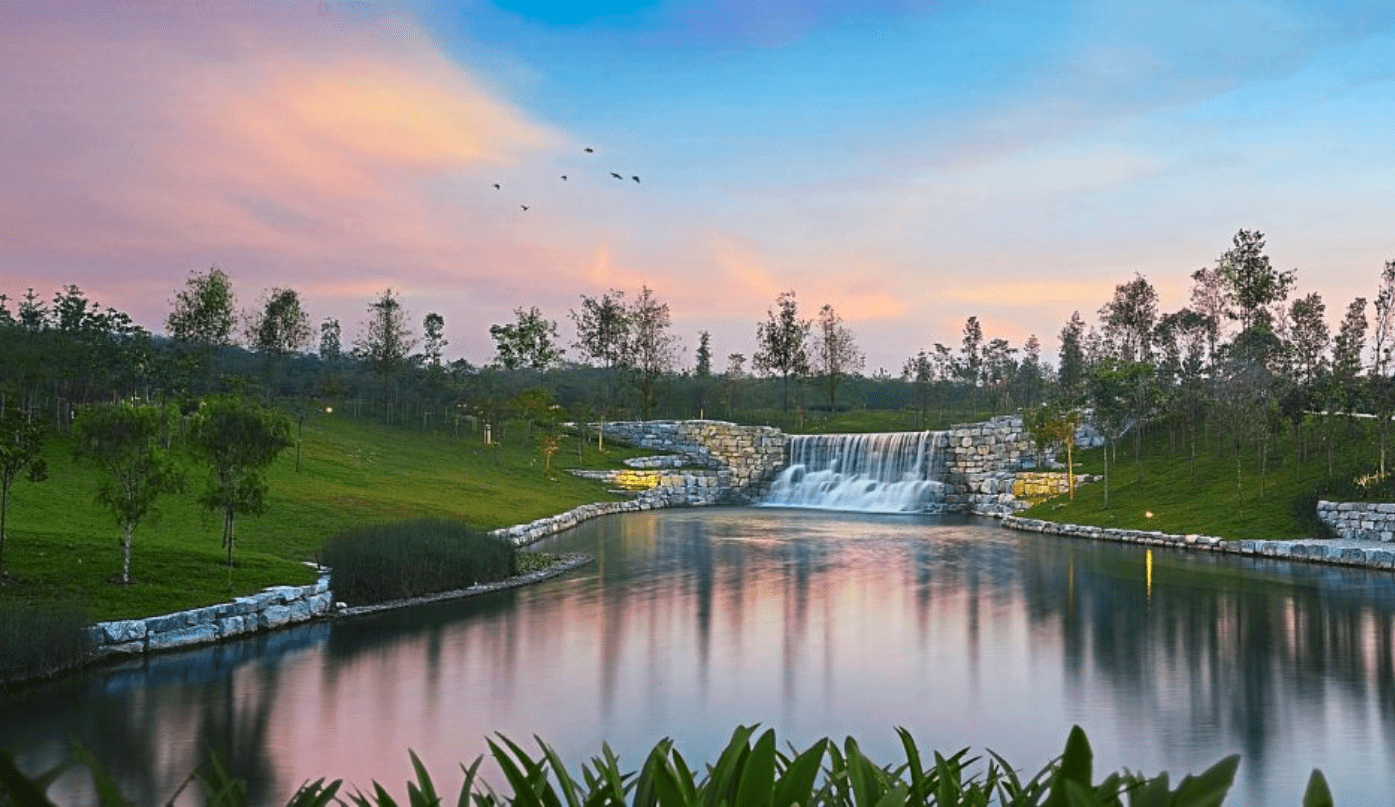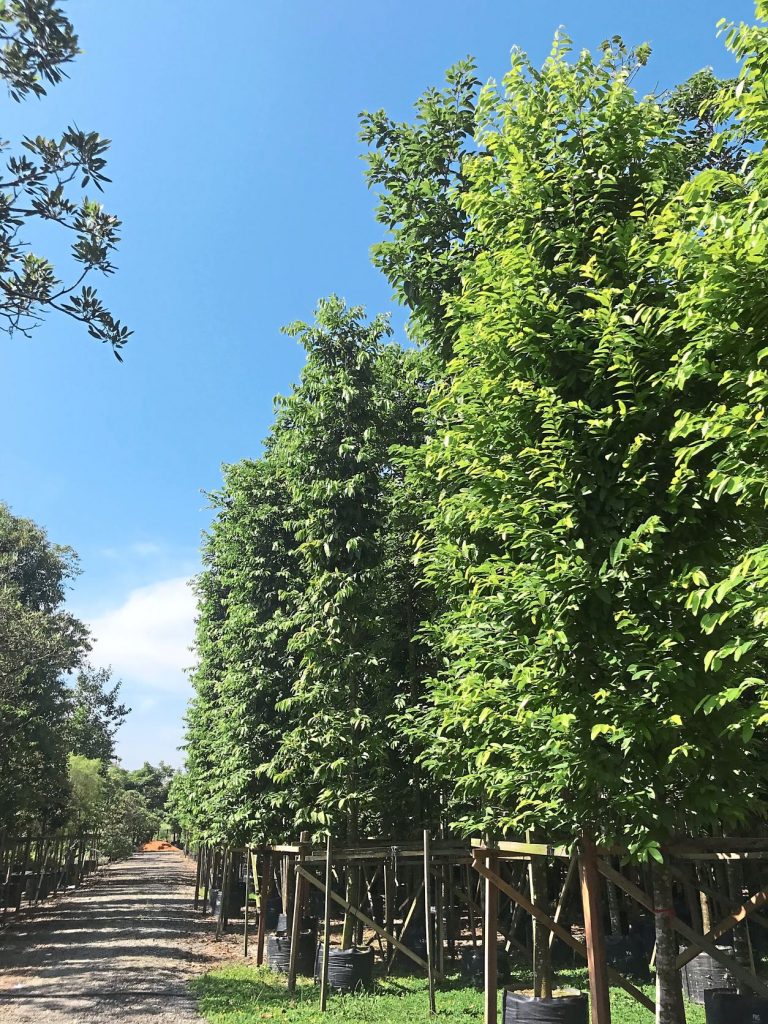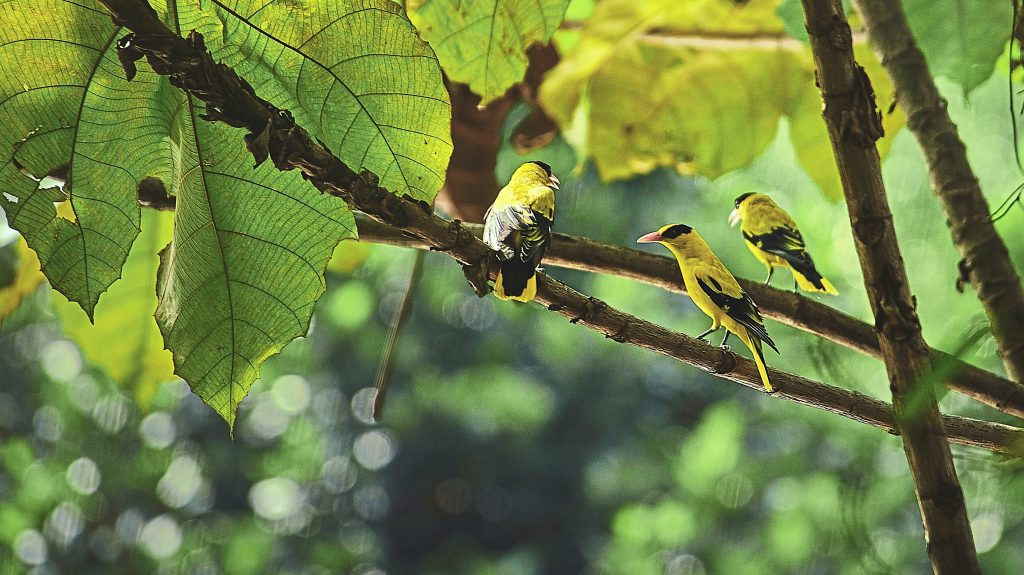
- About Us +
- Developments +
- Sustainability +
- Happenings +

Formerly a monoculture rubber plantation, Gamuda Gardens is now a biodiverse parkland with a thriving ecosystem.
Gamuda Land’s focus on building in harmony with nature has always been part of its DNA since the developer’s inception, as embodied in one of its core development principles, listening to what the land has to tell us. What lies hidden from the general public’s eye is the dedication and effort that Gamuda Land puts into the sustainability of the land it develops.
“We preserve the existing contours of the land to give our homes natural views and lakeside and hillside settings. We preserve the trees that were there before us, with a focus on 70% native species across our developments, towards creating urban forests which reduce ambient temperatures, enhance liveability and sequester carbon.
“We preserve the topsoil during development to nurture the ecosystems in and around our communities. And we manage the land’s water runoff and channel it into lakes and ponds, allowing for better storm management, reducing flooding and helping to maintain the site’s water ecosystem,” said Gamuda Land product management unit executive director Jess Teng Poh Fern.

She said that much of Gamuda Land’s sustainability efforts are undertaken by Gamuda Parks, launched in 2018, to spearhead the management and implementation of natural elements across its townships. “Gamuda Parks has been a key part of Gamuda Land’s development approach and identity from the start, and this was implicit in its mission and its relation to our core development principles.
“We are fully committed to a holistic approach to nature and the management of natural elements across our portfolio. Gamuda Parks addresses not just the softscapes and landscapes in our townships and communities, but also research and development, sustainable business practices and even social management plans,” said Teng.
This includes its #OneMillionTrees target to be planted by 2023 via advanced tree planting (ATP), supporting Pillar 3 (Environmental and Biodiversity Conservation) of the Gamuda Green Plan 2025, a comprehensive framework charting tangible targets driven on environmental, social and governance (ESG) dimensions set forth over the next five years and beyond.

To date, Gamuda Land has made tremendous progress, including having conducted nine biodiversity audits across its townships and communities, benchmarking the diversity of flora and fauna ecosystems in and around its developments towards transparent and accountable enhancement efforts.
The developer also planted over 112,000 trees in 2021 using advanced tree planting and Miyawaki foresting techniques to bring it closer to the one million-tree target. Gamuda Parks also works with the native Orang Asli community, channelling its experience and expertise with native tree species and local forest ecosystems to enhance tree planting efforts.
To spread environmental awareness among youths, the GParks Rangers programme instils the love of nature in young minds, with more than 3,000 Gparks rangers recruited to date. Gamuda Parks also heads Gamuda Land’s outreach programmes for the Orang Asli community under Pillar 2 (Our Community and Our Business) of the Gamuda Green Plan 2025, featuring the Farm-to-Mouth programme, Wild Tree Seed Bank and Orang Asli School Digital Tools initiative to assist native students in catching up with their lessons amid school closures during the pandemic.
“Our primary sustainability thrusts come under Pillar 1 (Sustainable Planning and Design for Construction) of the Gamuda Green Plan 2025,” said Teng.
She said this pillar looks into three main areas, namely energy, transport and construction, among others. “We aim for a 40% overall reduction in carbon dioxide equivalent emissions by 2030, aligning with the larger move towards low carbon, resource-efficient and socially inclusive economies.
“Towards this end, we have set actionable implementation plans, such as the establishment of 250km of cycling and pedestrian networks by 2025 and 40% reduction in non-renewable energy use across our developments, supporting the national Low Carbon Cities Framework (LCCF),” said Teng.
In addition, the Gamuda Parks Biodiversity Policy also aligns with the National Policy on Biological Diversity 2016-2025, with regard to the longterm mitigation and monitoring of environmental impacts from Gamuda Land development projects.

Growing its international presence
In FY2022, Gamuda Land plans to launch projects internationally and locally across key townships, including Gamuda City, Gamuda Cove, Gamuda Gardens and twentyfive.7, with a sales target of RM3.5bil. “In addition, the Covid-19 pandemic and its impacts have given us the opportunity to reset our five-year business plan,” Teng said.
Among the realigned goals is a target of 20% compound annual growth rate in terms of sales and earnings, and regional growth. “Learning from our last five-years plan, diversification is important, with a focus on high-value, low-risk international acquisitions in Vietnam, Australia and the UK,” she said.
Towards a greener future
Gamuda Land’s outlook for the property market, like its green initiatives, is positive as the developer is not planning for short-term gains but for long-term goals to deliver sustainable, quality homes. “With widespread vaccination and the opening of economic activities and international borders, we have reason to be optimistic in FY2022,” said Teng.
Given the favourable National Property Information Centre figures of 21% and 32% YoY increases in transaction volume and value respectively in H1 2021, and that the Gamuda Land sales performance is approaching pre-pandemic levels again, the outlook for next year is promising, she pointed out.
“We anticipate pent-up demand to drive property sales for market-driven products moving forward, with more investor activity due to the new RPGT (Real Property Gains Tax) guidelines,” she said. Moving forward, Gamuda Land will intensify its focus on climate responsive-designs and developments, as well as decarbonisation within the industry, driven by global transitions to greener economies and a national focus on ESG compliance in Budget 2022, she added.